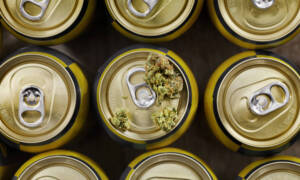
It started with champagne and now has hit cannabis. Pride of name is not only respectful, but can be very lucrative, and cannabis is the latest in a series of lawsuits and mandates about what you can call a product. Canadian cannabis companies are in a pickle with a new naming regulation regarding certain products.
Champagne started the trend after WWI. French vinters wanted to protect the use of the term “champagne”. Only bubbly made using traditional methods from grapes grown and vinified in the Champagne region of France would only be allowed the moniker. When the Treaty of Versailles was signed in 1919 ending WWI, the French inserted limits on the use of the name. It was ratified by all the players, except the United States.
Korbel and Miller have used the term champagne liberally for decades. Miller Beer refers to itself as the champagne of beers. In 2006, the United States and the European Union signed a wine-trade agreement, and the champagne name issue resurfaced. This time, the United States agreed to not allow new uses of certain terms that were previously considered to be “semi-generic,” such as “Champagne” (as well as “Burgundy,” “Chablis,” “Port” and “Chianti”). But anyone who already had an approved label, Korbel and Miller High Life two key players, could continue with use.

Xerox works hard to ensure its brand names avoids becoming generic. Xerox, which manufactures photocopying and printing machines, is arguably one of the most famous examples of a trademarked name being used in everyday speech, but not yet becoming a generic term. This is thanks to a major advertising campaign including. “When you use ‘Xerox’ the way you use ‘Aspirin,’ we get a headache.” Aspirin was a trademark owned by Bayer until 1919. Xerox has worked with dictionary publishers in an effort to convince them to define ‘Xerox’ as a trademark as well as a company.
Despite efforts, Coke became a generic name in ordering soda, especially in the American South. They lost out and now people can order a coke and receive a Pepsi, Costco cola or anything else.
Now Canada has ruled cannabis beverages can not be called soda or cola. Health Canada, which oversees the marijuana industry, has decided cannabis products can not be called soda or cola due to the potential to appeal kids.
A Health Canada spokesperson referred to a policy statement on the Cannabis Act stating they determine whether a product appeals to young people based on specific circumstances and factors.
These factors encompass the product’s name, shape, smell, color, flavor, and how it is presented to consumers. According to the spokesperson, terms such as “soda,” “root beer,” “cola,” and “ginger ale” are considered potentially attractive to youth due to their association with soft drinks, which falls under the prohibited examples outlined in the policy statement.
RELATED: California or New York – Which Has The Biggest Marijuana Mess?
This enforcement action could significantly impact the thriving market of carbonated cannabis beverages, which currently represent approximately 60% of all cannabis beverage sales.
According to an analysis conducted by market analytics firm Headset, nearly half of the top-selling carbonated cannabis beverages could face repercussions from this directive.

This will litigated in court and in back rooms with the outcome far from decided. Think of milk. Soy, oat, almond and other drinks billing themselves as “milk” can continue using the name, according to draft federal rules released in February of this year. The dairy industry was highly distressed.
RELATED: Unlicensed Shops in NYC Are Doing Better Than The Naked Cowboy
And it is still up in the air if plant based protein is allowed to be called meat. Stay tuned for further developments.






